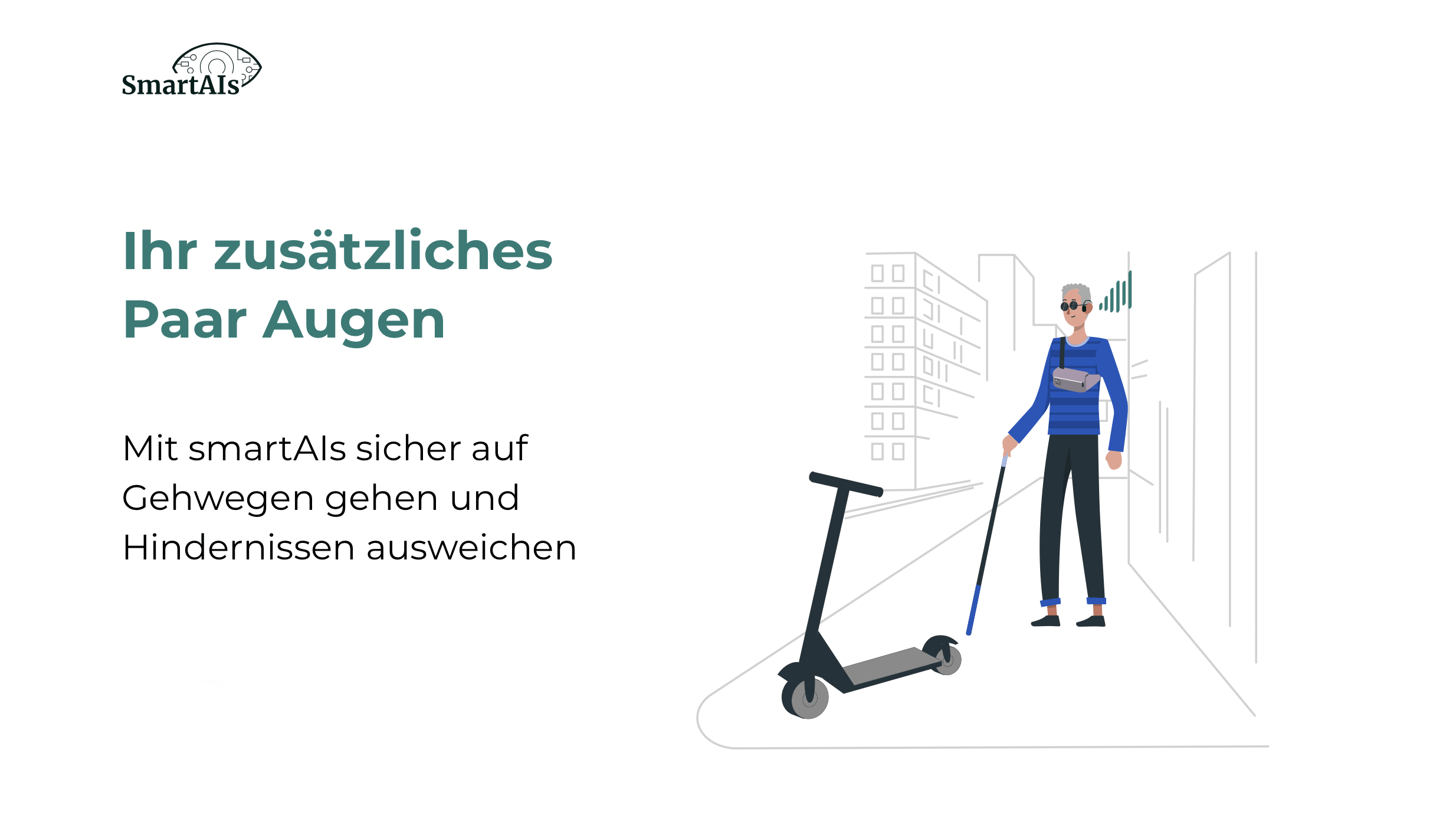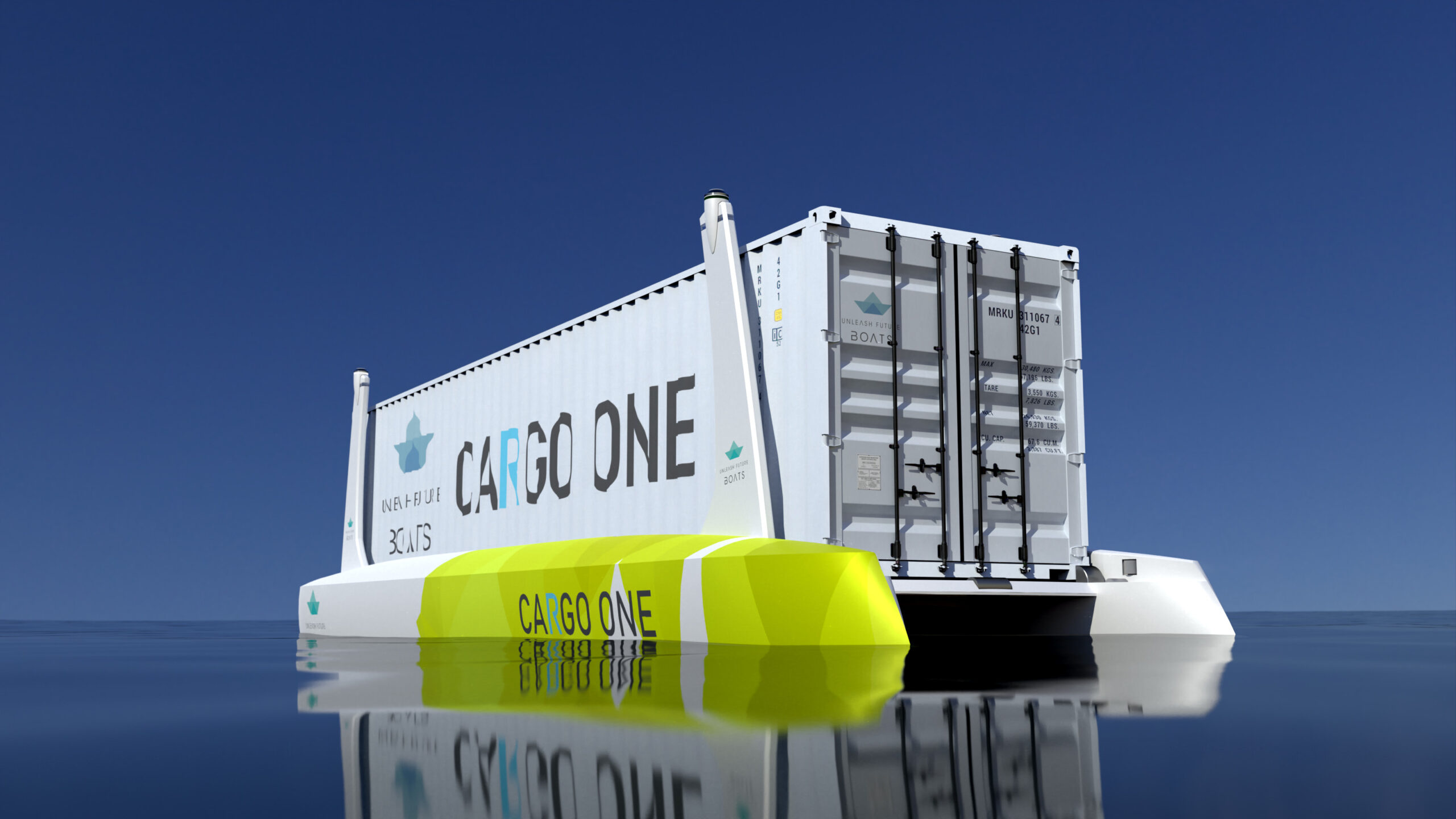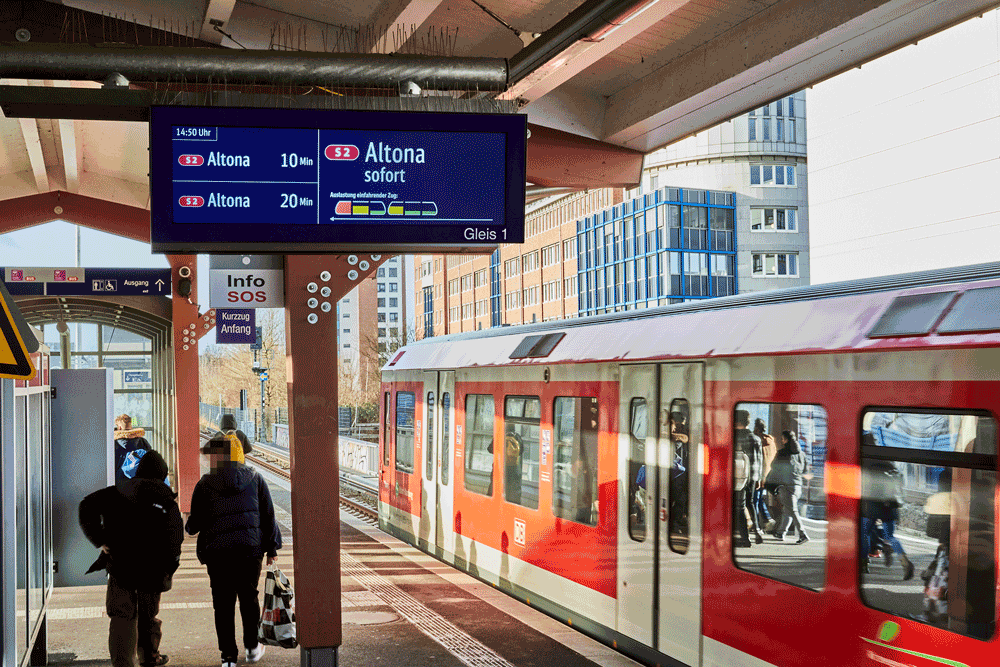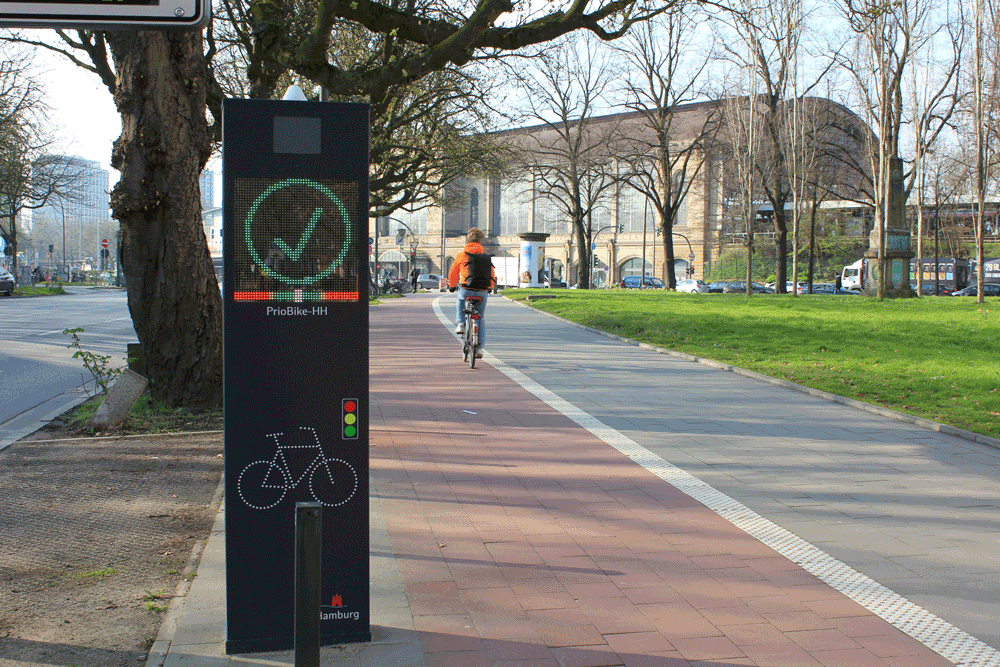Shortlist 2024
DMP | Digital Transformation and AI
Futurail - The future of self-driving trains
Futurail - The future of self-driving trains
Locomotives and railcars need a large number of cameras, sensors and control elements to be able to run driverless. These need to record and analyse what is happening on and next to the tracks, as well as which signals trains should send and where they should stop. In the Futurail project, the participants are developing and testing a control system that also utilises artificial intelligence. With this they analyse numerous route data recorded under different weather conditions. From this, it calculates models for the automated obstacle detection and track monitoring of autonomous locomotives and railcars. As part of the project, the team also wants to improve the exchange of data between railway operating systems in order to optimise rail traffic.
Location: Munich (Bavaria) & Strasbourg (France)
Project Website Project WebsiteMoveOn – Cycling data for Germany
MoveOn – Cycling data for Germany
MoveOn accesses data that is collected and collated as part of the nationwide cycling campaign ‘Stadtradeln’. Over 475,000 participants in more than 2,800 municipalities record their cycle journeys via app – around seven million per year. The MoveOn team analyses this data and makes it available to the participating municipalities free of charge as a basic analysis. To do this, they prepare the data obtained for six application scenarios. For example, as user statistics, graphically prepared ‘heat maps’ or as an analysis of waiting times at junctions. These planning tools can be used directly via a web browser. Employees in over 700 local authorities currently use the data for local transport planning.
Location: Dresden (Saxony)
Project Website Project WebsiteSmartAIs - Obstacle detection app for blind and visually impaired people
SmartAIs - Obstacle detection app for blind and visually impaired people
SmartAIs make it possible for a smartphone to assist blind and visually impaired people by recognising their surroundings and alerting them to special conditions and obstacles in their way. To do this, they carry the smartphone in a special breast pocket. The app uses the smartphone’s camera as well as technologies from the fields of computer vision, robotics and autonomous driving to calculate corresponding messages in real time from the images taken. The calculations are carried out using AI-based technologies and take place entirely on the smartphone. The project team is cooperating with blind and visually impaired people who are testing the app in real-life situations, as well as with major German stakeholder associations and institutions who are contributing their expertise in the field of aids for the blind.
Location: Munich (Bavaria)
Project Website Project Website
DMP | New Mobility Solutions
Bonvoyo - payment method for employer-funded mobility budgets
Bonvoyo - payment method for employer-funded mobility budgets
With Bonvoyo, Deutsche Bahn Connect offers interested companies a platform that allows them to set up mobility budgets for their employees. This budget can be used differently depending on the mode of transport chosen by the employee in the associated app. At the same time, the app suggests alternative modes of transport that are less harmful to the environment. In addition, Bonvoyo, which is also integrated into Deutsche Bahn’s Navigator app, allows employees to settle their travel directly with their employer without having to pay in advance. The aim of the Bonvoyo platform is to reduce employees’ mobility behaviour and CO2 emissions, thereby also reducing the company’s environmental impact.
Location: Frankfurt on the Main, Hesse
Project Website Project Website
KIRA - AI-based regular operation of autonomous public transport vehicles
KIRA - AI-based regular operation of autonomous public transport vehicles
As part of KIRA, the project team is testing autonomous public transport vehicles that comply with the Level 4 standard for autonomous driving. The tests are carried out with six autonomous shuttle vehicles operating in urban and rural areas of the city of Darmstadt and the district of Offenbach. They will travel at standard speeds in normal road traffic within a defined service area. Test users will be given the opportunity to ride along, with safety personnel on board at all times during the test. In addition to the technology, the project will also test approval processes, operation, technical monitoring, interior management, customer processes and the control platform. The aim is to facilitate and accelerate the integration of autonomous on-demand fleets into regional public transport services. KIRA is initiated by DB Regio and the Rhein-Main-Verkehrsverbund (RMV).
Location: Darmstadt and Offenbach district (Hesse)
Project Website Project Website
NeMo.bil - Networked Vehicle Mobility System for Public Transport
NeMo.bil - Networked Vehicle Mobility System for Public Transport
The project focuses on lightweight, electrically autonomous and digitally networked vehicles (Cab) for the transport of goods and passengers. From individual starting points, they link up with a towing vehicle (Pro) to travel longer distances in convoy. In the destination region, they decouple and take users to individual end points. Vehicle-to-vehicle technology is used for direct data exchange between the vehicles. The vehicles will be able to navigate and drive independently using artificial intelligence and sensor technology. The fleet will be tailored to demand. Cabs equipped to accommodate people with special needs are also planned.
Location: Grafing near Munich (Bavaria)
Project Website Project Website
DMP | Design
AdaptIn - Intelligent warning lights for an improved road safety
AdaptIn - Intelligent warning lights for an improved road safety
An innovative warning system has been developed at RWTH Aachen University to prevent turning accidents. What sounds paradoxical at first: it is quite inconspicuous. The lights at the side of the road are neither particularly large nor do they flash constantly. Instead, the traffic situation is recorded by thermal imaging cameras and evaluated in real time using AI. The system only activates the LED columns, which are around one metre high, if a collision is imminent. They are intended to subconsciously alert drivers to the risk and trigger appropriate behaviour at an early stage – e.g. braking, looking over the shoulder. In psychology, such subtle measures are known as nudges. mobaix GmbH was founded in order to bring the nudge for greater road safety to market maturity.
Location: Aachen (North Rhine-Westphalia)
Project Website Project WebsiteCustom - The customised solution for barrier-free information on public transport
Custom - The customised solution for barrier-free information on public transport
Visually and hearing impaired people do not have access to the same passenger information on public transport as people without disabilities – which is why Custom ensures equal treatment. In close cooperation with the stakeholder group, the concept for an app was developed that is customisable and conveys the most important information visually and audibly. A total of four central functions are to be implemented in the app: The replication of the departure monitor, journey registration via the control centre and on-board computer, announcements in text and sign language as well as a replication and extension of the bus monitor or passenger television. The prototype was successfully tested with the Hamburg S-Bahn, and the app should be running on the buses operated by Verkehrsbetriebe Hamburg-Holstein by the end of 2024.
Location: Hamburg (Hamburg)
Project Website Project Website
UNLEASH FUTURE BOATS - Autonomous, emission-free boats for people and goods
UNLEASH FUTURE BOATS - Autonomous, emission-free boats for people and goods
Everyone is talking about self-driving cars – but these self-driving e-boats are no less fascinating. The Future One (passenger transport) and Cargo One (freight transport) models combine advanced technology and sustainable design to create an environmentally friendly and forward-looking mobility solution that is scalable worldwide. Artificial intelligence enables autonomous navigation and route optimisation by using sensors to collect real-time data on the condition of the boats and the environmental conditions. This data is continuously analysed in order to optimise the performance and maintenance of the boats – with success: the ZeroOne prototype has received worldwide approval. The technologies are tested and further developed under real conditions in the ‘Digital Test Field Schlei’.
Location: Busdorf (Schleswig-Holstein)
Project Website Project Website
DMP | Good Practice
DB Lightgate - Real-Time Rail Occupancy Monitoring
DB Lightgate - Real-Time Rail Occupancy Monitoring
Rail transport runs more efficiently if it is known how busy the trains are. Until now, however, there have been no systems to measure capacity utilisation comprehensively, cheaply and in real time. S-Bahn Hamburg has therefore developed DB Lightgate: a system that uses around 40,000 LED light points to illuminate trains travelling through the station and accurately record the occupancy rate of each carriage. Algorithms also determine the type of train, the number of carriages and the speed. In Hamburg, the real-time data is displayed to passengers on the platform so that they can find a free seat on the incoming train. The data helps train drivers and dispatchers to control operations. The patented system is now also used in Berlin, Leipzig, Frankfurt and Munich.
Location: Hamburg (Hamburg)
Project Website Project WebsitePrioBike-HH - Boosting cycling with digital technologies
PrioBike-HH - Boosting cycling with digital technologies
The city of Hamburg has committed itself to the mobility transition. As part of this, cycling is to become more attractive – safer and more convenient. The PrioBike-HH project relies entirely on digital technologies and traffic networking, which enables a bouquet of measures: green waves, green requirements, various speed recommendations for the best traffic flow, safety instructions using flashing ground lights and much more. In addition, a routing app was developed based on a digital directory of Hamburg’s cycle paths, which can also use traffic light data to calculate the speed at which cyclists will reach the next traffic light when it turns green. The project was also used to further expand Hamburg’s cycle counting network.
Location: Hamburg (Hamburg)
Project Website Project Website
SMILE24 - Germany's most comprehensive local transport service in rural areas
SMILE24 - Germany's most comprehensive local transport service in rural areas
Emission free mobility around the clock in the sparsely populated but seasonally highly frequented tourist area around the Baltic Sea fjord Schlei and parts of the neighbouring coast – without having to own a car. To this end, the local public transport service has been extensively expanded to include electric express and tourist bus routes, a comprehensive electric, barrier-free on-demand service, e-car sharing, expanded bike sharing and an app that links everything together. The result is Germany’s most comprehensive local transport service in rural areas, which enables a journey to and from any location in the project region at least once an hour, day or night. SMILE24 is realising the vision of public and integrated everyday mobility – as a lever for a real, lasting modal shift.
Location: Rendsburg-Eckernförde and Schleswig-Flensburg (Schleswig-Holstein)
Project Website Project Website
DMP | Audience Award
The DMP | Audience Award is decided solely by the public. The Audience Award shows what citizens think is most important for the future of mobility. The DMP | Audience Award goes to the project that receives the most votes in the live voting during the award ceremony on 21 October 2024 at the Federal Government’s Digital Summit.















